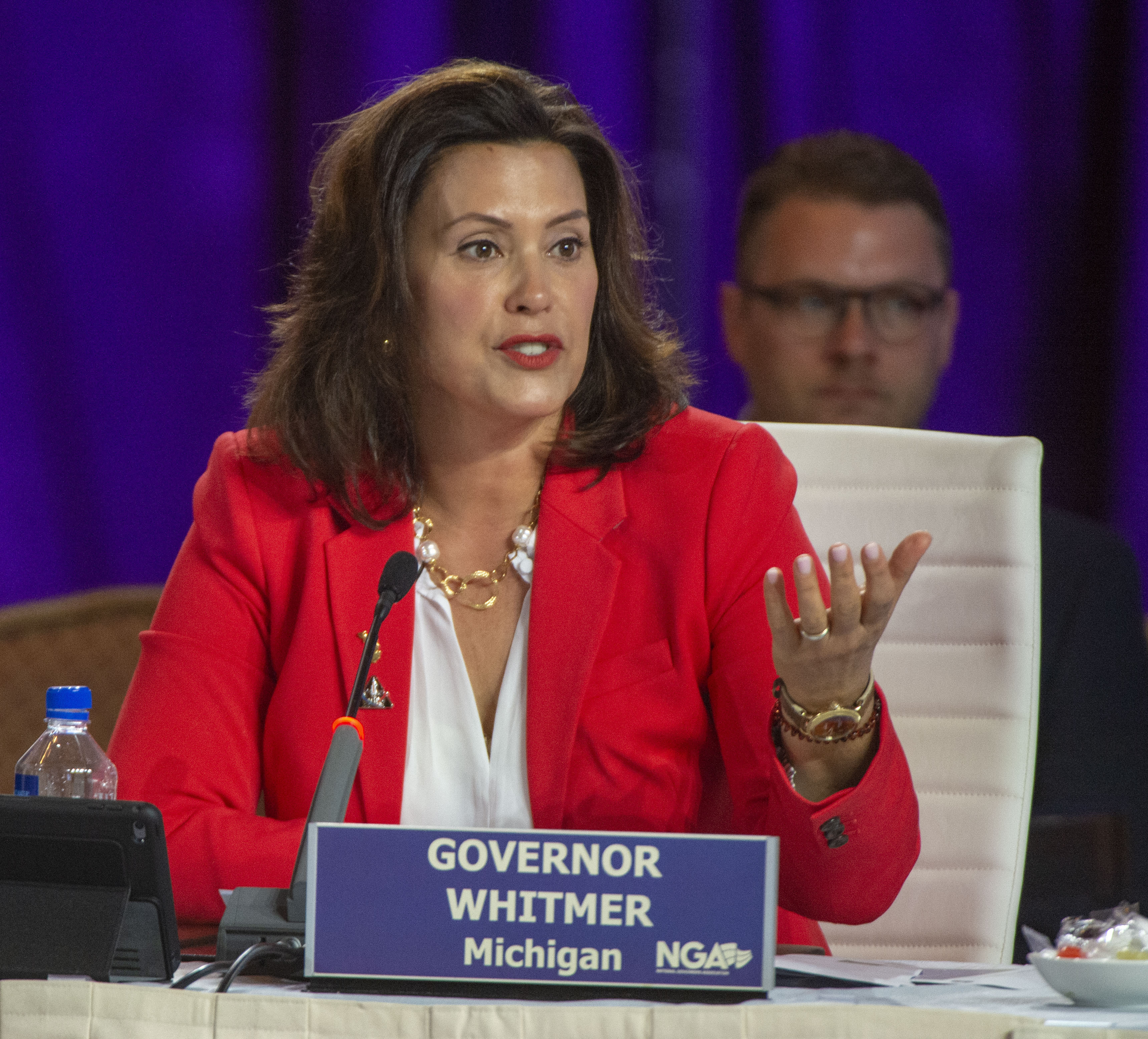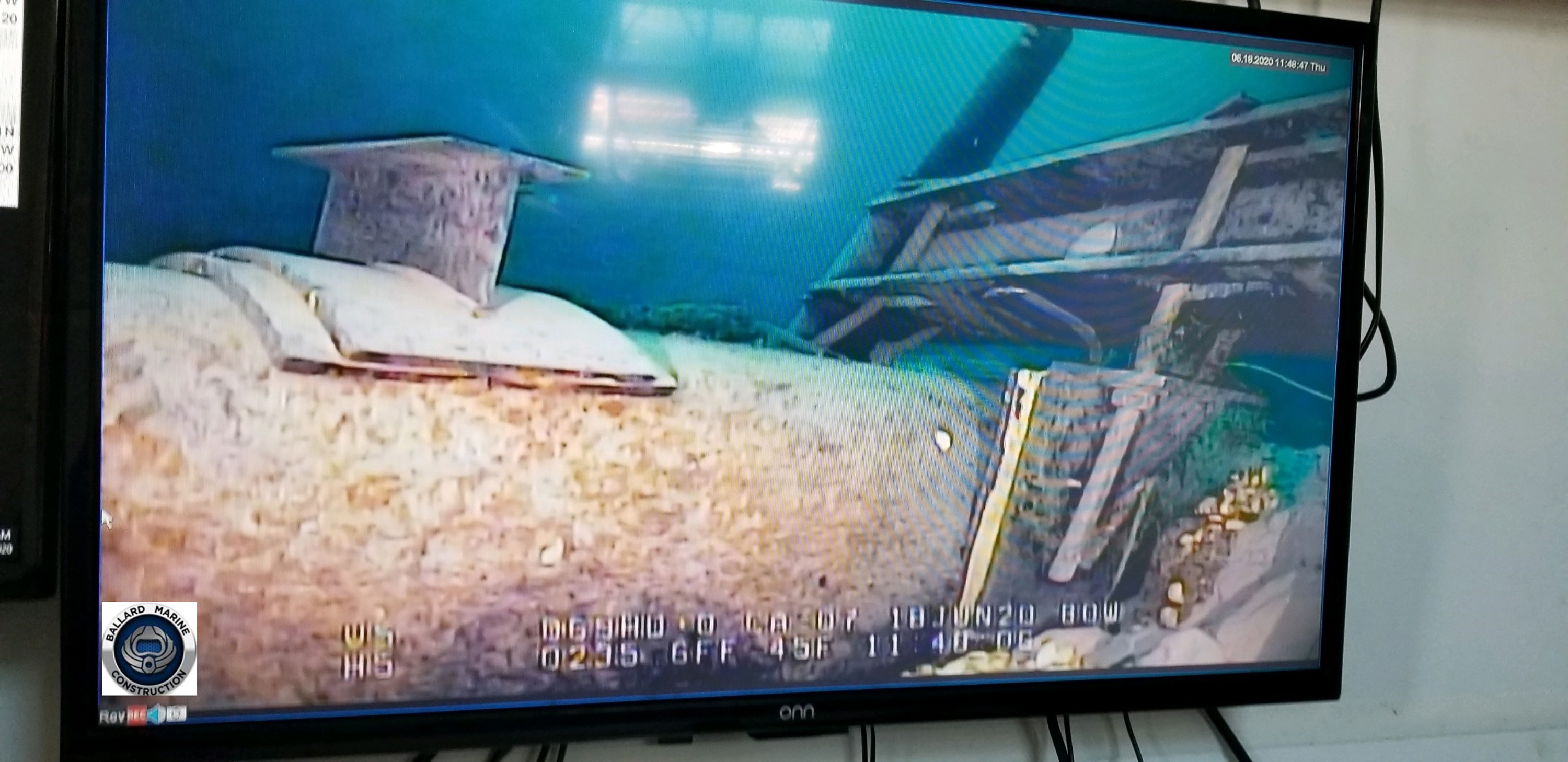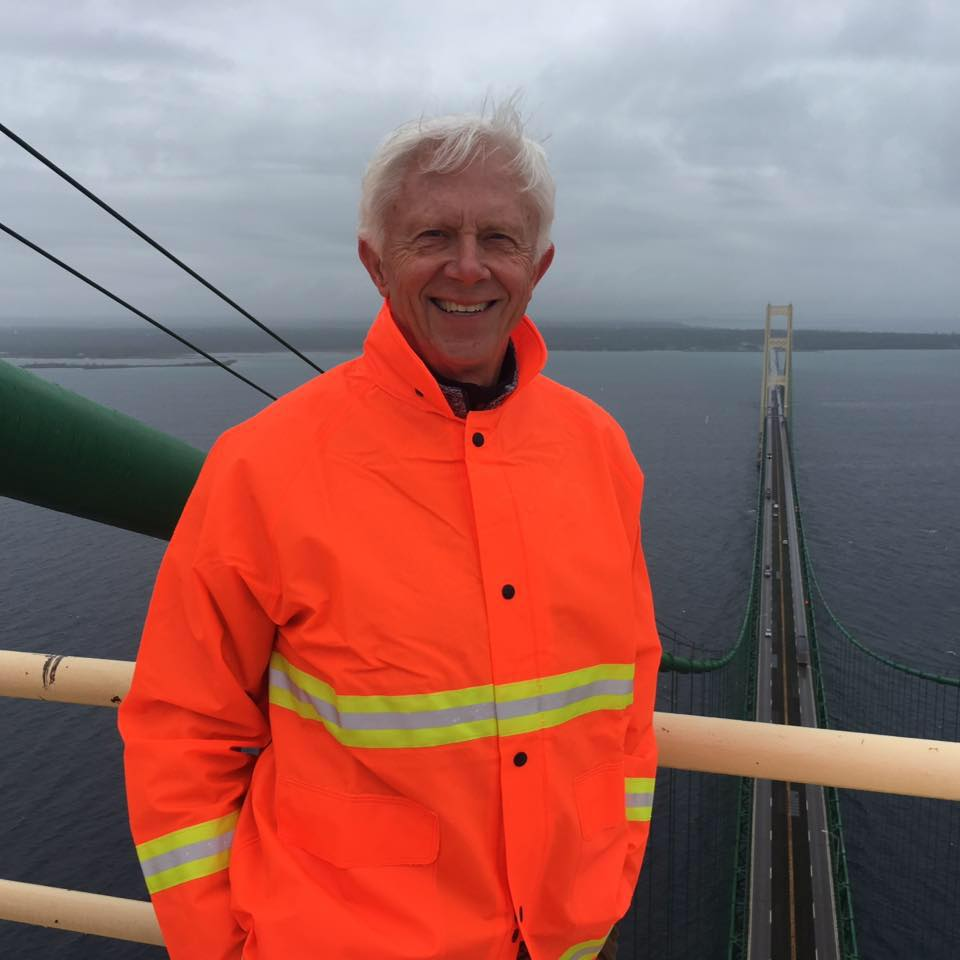
Michigan Gov. Gretchen Whitmer doesn’t need another crisis.
For six of her 18 months in office she’s been grappling with the COVID-19 pandemic that grips Michigan and shows few signs of abating. Then came a May rain deluge that contributed to the failure of an already dangerous dam that displaced 10,000 people.
Now, the aged Enbridge Energy Line 5 oil pipeline is back in the spotlight after a recent inspection revealed damage that prompted Attorney General Dana Nessel to secure a court order to temporarily shut Line 5 down.
And therein lies the dilemma for Whitmer.

Dana Nessel, Michigan Attorney General
Whitmer and Nessel both said they wanted to shut down Line 5 when they campaigned for office in 2018.
“On the day I take office, I will initiate necessary steps to remove dangerous oil pipelines from the Great Lakes and protect our water and protect Michigan jobs,” Whitmer said on her campaign website.
But her actions haven’t matched the high Line 5 expectations she set.
Nessel has been true to her word, turning to the courts at every possible opportunity for relief on Line 5. When she petitioned a court last week to temporarily shut Line 5 down, it was her third attempt to intervene on the issue.
She has tried and failed to get a court to invalidate the agreement between Michigan and Enbridge on Line 5’s replacement, a pipeline in a tunnel. She also has a public nuisance lawsuit pending to shut the pipeline down.
Unlike Nessel, Whitmer doesn’t want to turn to the courts to resolve the Line 5 issue.
In a June 2019 interview with Great Lakes Now, Whitmer said protracted litigation without the tunnel or another alternative would be the “worst case scenario.”
Whitmer had been negotiating with Enbridge, trying to speed up the process on the tunnel and set a firm end date for the existing pipeline without success.
In a precautionary move in June 2019, she directed the Department of Natural Resources to conduct a review of Enbridge’s compliance with the 1953 easement that granted the company authority to operate the pipelines on the bottomlands of the Great Lakes.
That review continues and there is no date certain for its completion, DNR spokesperson Ed Golder told Great Lakes Now.
“The DNR’s review of Enbridge’s compliance with the 1953 easement for Line 5 has involved thousands of pages of detailed information and has required considerable technical evaluation,” Golder said.
Since then Whitmer has been relatively quiet on Line 5, making nuanced statements like “get that pipeline out of the water” without addressing specifics.
Meanwhile, anti-pipeline activists who have long-supported Whitmer on Line 5 have become impatient with her intransigence after 18 months in office.
Whitmer has done more talking than taking action on Line 5 and has stayed on the legal sidelines, according to Oil and Water Don’t Mix, a coalition of activists working to shut down Line 5.
“Whitmer is shirking her responsibility and duty to protect the Great Lakes. Words are not actions, and Enbridge is likely to only bend to actions,” the group said in a press release.
With legal action on Line 5 escalating, Great Lakes Now asked if the governor still stands by her 2019 comment that protracted legal action is the “worst case scenario.”
Great Lakes Now also asked if Whitmer has had any recent discussions with Enbridge CEO Al Monaco that are separate from the correspondence they’ve exchanged on the recent problems with Line 5.
The governor’s office did not respond to requests for comment.
A similar inquiry to the attorney general’s office asked if the AG and the governor are now on different tracks for dealing with Line 5.
Spokesperson Ryan Jarvi did not acknowledge a divergence but said, “Since Enbridge has refused to set any certain timeline on shutting the pipeline down – including 2024, when they indicate the tunnel will be finished – the state is left with no choice but to pursue litigation, which we are doing as expeditiously as possible.”
In a statement, Whitmer applauded the court’s recent decision to temporarily shut down Line 5 and said she “will continue working to keep our water safe.
Line 5 has since been allowed to restart.

This June 2020 photo, shot from a television screen provided by the Michigan Department of Environment, Great Lakes, and Energy shows damage to anchor support EP-17-1 on the east leg of the Enbridge Line 5 pipeline within the Straits of Mackinac in Michigan. Enbridge who provided the photos to the state of Michigan, last week said an anchor support on the east leg of the pipeline, right, had shifted. A judge has shut down the pipeline in Michigan’s Great Lakes, granting a request from the state. The judge says Enbridge hasn’t provided enough information to show that continued operation of the west leg of the twin pipeline is safe. (Michigan Department of Environment, Great Lakes, and Energy via AP)
Economic implication
While environmental groups have historically focused on Line 5’s impact on the environment, Chicago-based Environmental Law and Policy Center questioned the economic viability of the pipeline in a tunnel project given the current state of oil prices.
“Who’s going to finance this tunnel given low oil price realities?” ELPC executive director Howard Learner wrote in a recent Crains Detroit opinion piece.
Enbridge’s real strategy is to spend money on permitting and planning processes for its tunnel while continuing to run its aging 67-year-old oil pipeline, Learner speculated.
But he said it’s “probably not economically sensible for Enbridge and its financiers to invest in the tunnel if oil prices stay low,” Learner said.
Not so, Enbridge responded.
“We are fully committed to investing $500 million into the project, that has not changed,” Enbridge spokesperson Ryan Duffy said.
Duffy said Enbridge paid more than $60 million in property taxes in 2019 and that money was used by local governments, schools and first responders.
In Ohio, Attorney General Dave Yost made the economic case for keeping Line 5 operating in a recent court filing on the temporary shutdown.
He said the complete shutdown of both lines unnecessarily and negatively affects Ohio refineries and puts more than a thousand Ohioans out of work.
“Both Ohio’s economy and environmental safety are preciously important to me,” Yost said in a press release.
“I believe that the designed redundancy of the two lines provides the company the ability to safely operate one line while the other is being addressed, which keeps the supply chain intact and Ohioans at work,” Yost said.
Widespread support for tunnel
Rep. Jack Bergman’s congressional district covers Michigan’s northern Lower Peninsula and the Upper Peninsula. The Straits of Mackinac where Line 5 cuts through is in the middle of his district.

Rep. Jack Bergman
“Rep. Bergman has repeatedly made it clear that he supports the pipeline in a tunnel project as the best solution,” spokesperson James Hogge told Great Lakes Now in a phone interview.
The tunnel “has bipartisan support in the first congressional district,” Hogge said and cited the union jobs that will be created and that the tunnel will provide energy solutions for years to come to bolster the case.
Enbridge’s Duffy echoed the support in the district.
“We are seeing widespread support as 23 counties have now passed supportive resolutions. Also the Michigan House of Representatives passed a supportive resolution last week,” Duffy said.
On environmental concerns, Hogge said in Bergman’s district, “no matter where you are on the political spectrum, there is support for clean water and protecting the Great Lakes and the tunnel provides that protection.”
Read more news about Enbridge on Great Lakes Now:
Michigan judge allows restart of disputed Line 5 oil pipeline
Judge shuts down energy pipeline in Michigan’s Great Lakes
Whitmer demands answers from Enbridge on pipeline damage
Enbridge to move forward with tunnel permitting amid pandemic, Interlochen Public Radio reports
Pollution, Permits: Enbridge, Michigan grapple with Line 5 tunnel project
API key not valid. Please pass a valid API key.Featured image: Michigan Gov. Gretchen Whitmer speaks during a session at the National Governor’s Association conference in Salt Lake City. (Rick Egan / The Salt Lake Tribune via AP)
3 Comments
-
Thank you Mr. Bergman, thank you from my heart. You appear to care about us constituents. Please don’t back down against the governor. She is not respected in northern Michigan.
-
We need those pipelines but in that tunnel ASAP as a safety matter. Enbridge should get the permissions ASAP to start creating the tunnel.
-
-
The Governor has once again over extended her authority. The pipeline has been operating safely since 1953, and yet suddenly, there is a problem. The Michigan legislature passed and granted a project to build an improved and updated tunnel under the Straits; however, the Governor has opposed the existing pipeline and the new project since entering office. Her administration has already lost 2 lawsuits trying to shut the pipeline down, and they are headed for a third loss. The Governor’s decision is not based on facts and good policy, but rather fear. Sound familiar? Where is the economic and environmental analysis regarding the pipeline? Why not reference the study and report that was done by Michigan Tech to approve of the new pipeline? Who will replace the $60 million tax dollars per year paid by Enbridge? Who will replace the jobs lost by shutting the pipeline? Hasn’t the Governor learned that there are economic consequences to her actions? Let the people decide; not the dictator.




